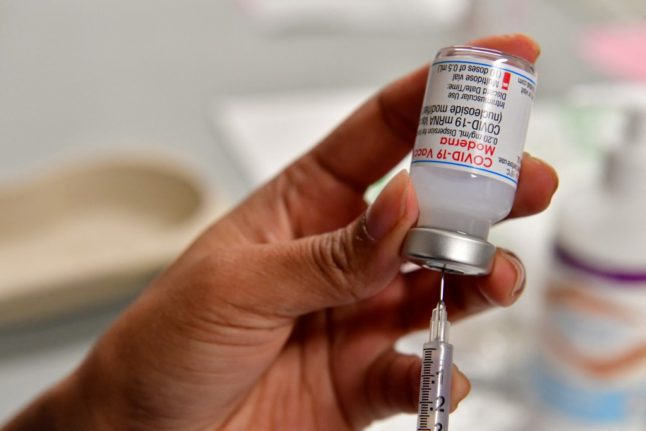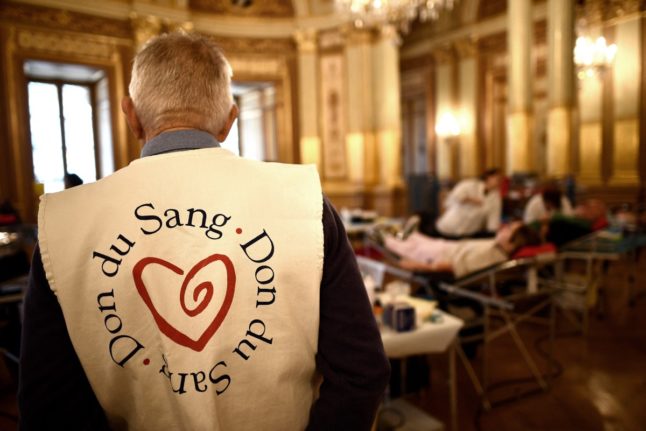Question: I am qualified, by age and by time elapsed since my first Covid booster, for a fourth shot. But I want to make sure that my fourth shot will be one of the new dual-strain vaccines. Is this possible?
French health authorities launched the autumn booster campaign on October 3rd, which includes newly authorised bivalent (dual-strain) vaccines – such as the Pfizer/BioNTech vaccine adapted to BA.1, the Moderna vaccine adapted to BA.1, and the Pfizer/BioNTech vaccine adapted to BA.4/5 – which are designed to combat the Omicron variant.
France’s health authority, the Haut Autorité de Santé said in a press release on September 20th that “the expected clinical efficacy of these new dual-strain vaccines is at least equivalent or even superior to that of the original vaccines.”
READ MORE: When, where and how to get flu shots and Covid boosters this autumn in France
So is it possible to specify when booking that you want the dual-strain vaccine?
The Local spoke with representatives from the French ministry of health, who specified on Friday that “dual-strain (bivalent) vaccines will be injected as a priority during the autumn campaign in accordance with the HAS recommendations.”
For those who are eligible to renew their booster dose, it is therefore “not necessary to specify that they want a bivalent vaccine, since we will have enough doses for the entire target audience.”
France’s General Health Directorate told the Journal des Femmes that the two most commonly used vaccines for its fall campaign are “the Comirnaty Original/Omicron BA.4-5 vaccine (by Pfizer) and the Spikevax bivalent Original/ Omicron BA.1 vaccine (by Moderna).”
Data for the last two weeks show that of the 112,409 people in France who received a second booster dose, 77,715 were vaccinated with the new Pfizer dual-strain vaccine, and 34,694 were vaccinated with the new Moderna Omicron-adapted product – meaning that everyone got a dual-strain vaccine.
You can find the whole list of those who are eligible for a second (or third) booster HERE.
READ MORE: Reader Question: Can I get a third Covid booster shot in France?
Additionally, health authorities have been recommending that anyone who is eligible should receive their booster shot.
Before the dual-strain vaccines were authorised, French health authorities recommended at-risk groups to receive booster vaccines as soon as possible, rather than waiting for the availability of the Omicron-adapted jabs.
“For people at risk, either the elderly or those with co-morbidities, it is necessary to give the fourth dose as long as the virus is circulating, and therefore as of now,” infectious diseases specialist Anne-Claude Crémieux told Le Parisien over the summer.
Crémieux added that vaccines not-adapted to Omicron subvariants have also “been proven to be effective against severe forms of the disease”.
If you have already had a booster with the original vaccine and now want an additional dual-strain booster this is possible, although you must wait either thee months (if you are over 80 or the resident of a nursing home) or six months (for other at-risk groups) after your most recent booster.
Additionally, TF1 reported on Friday that Santé publique France (France’s public health agency) was calling for an intensification of the ongoing vaccine campaign, because only 30.4 percent of 60-79 year olds had received their second booster dose as of October 10th, and only 37.7 percent of over 80s – the group most vulnerable to severe forms of Covid-19 – had received their new booster.
France is currently seeing a continued rise in cases amid the eighth wave of Covid-19, and the number of new positive cases rose by 13 percent in one week, as of October 11th.
Santé publique France referenced this during its weekly bulletin, saying that “the circulation of Covid-19 – and hospital admissions – continue to increase throughout metropolitan France.”
“Given the current situation and the diminished adoption of preventive measures, vaccination must be reinforced, in particular by a booster with a bivalent vaccine,” the agency wrote.



 Please whitelist us to continue reading.
Please whitelist us to continue reading.
Member comments